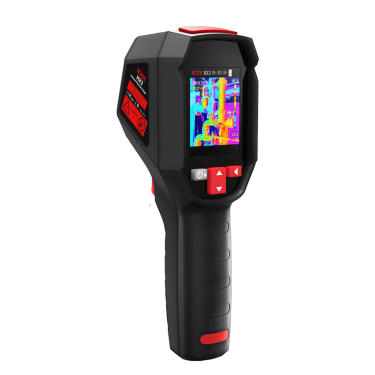
# Ear Thermometers: Accurate and Convenient Temperature Measurement
## Introduction to Ear Thermometers
Ear thermometers, also known as tympanic thermometers, have become increasingly popular in both medical settings and households due to their accuracy and ease of use. These devices measure the infrared heat emitted by the eardrum and surrounding tissue, providing a quick and reliable temperature reading.
## How Ear Thermometers Work
The Science Behind Tympanic Temperature Measurement
Ear thermometers utilize infrared technology to detect thermal radiation from the tympanic membrane. The eardrum shares blood supply with the hypothalamus, the body’s temperature control center, making it an excellent indicator of core body temperature.
Key Components
Modern ear thermometers consist of:
- An infrared sensor
- A probe cover (for hygiene)
- A digital display
- Memory functions (in advanced models)
## Advantages of Using Ear Thermometers
Speed and Efficiency
One of the primary benefits of ear thermometers is their rapid measurement capability. Most devices provide readings in just 1-3 seconds, making them ideal for restless children or emergency situations.
Non-Invasive Nature
Unlike rectal thermometers, ear thermometers offer a comfortable and non-intrusive way to measure temperature, reducing stress for both patients and caregivers.
Hygienic Operation
With disposable probe covers, ear thermometers minimize the risk of cross-contamination between users, an essential feature in clinical environments.
## Proper Usage Techniques
Correct Positioning
For accurate results:
- Gently pull the ear upward and backward (for adults) or straight back (for children) to straighten the ear canal
- Insert the probe snugly but not forcefully
- Press the measurement button and hold steady until completion
Environmental Considerations
Avoid taking measurements immediately after:
- Being in extreme temperatures
- Vigorous physical activity
- Bathing or swimming
## Comparing Ear Thermometers to Other Types
Versus Oral Thermometers
Ear thermometers provide faster results and are more suitable for patients who cannot keep their mouths closed for extended periods.
Versus Forehead Thermometers
While forehead thermometers are even more convenient, ear thermometers generally offer greater accuracy as they measure closer to core body temperature.
Versus Rectal Thermometers
Though rectal measurements remain the gold standard for infants, ear thermometers provide comparable accuracy with significantly more comfort.
## Choosing the Right Ear Thermometer
Key Features to Consider
When selecting an ear thermometer, look for:
- Clinical accuracy (±0.2°F or better)
- Memory function for tracking temperature trends
- Backlit display for nighttime use
- Age-adjustment settings
- FDA clearance or equivalent certification
Popular Brands and Models
Some well-regarded options include Braun ThermoScan, Omron GentleTemp, and Exergen TemporalScanner (which combines ear and forehead measurement).
## Maintenance and Care
Keyword: Ear Thermometers